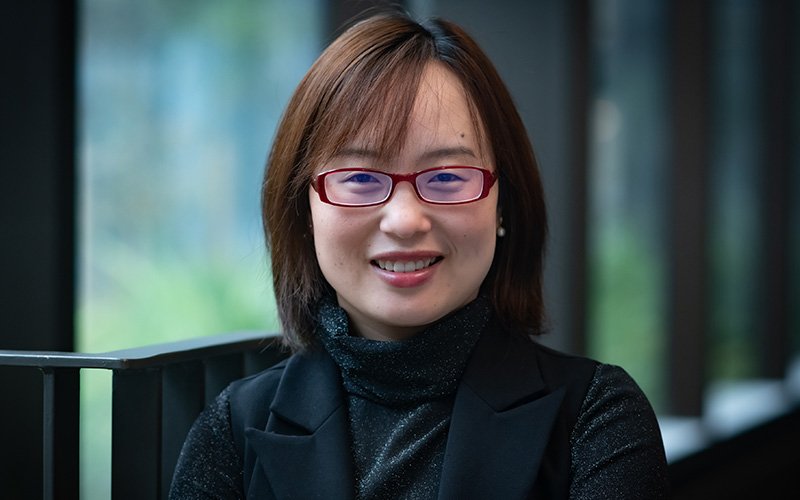3 Apr 2024
We recently caught up with Professor Bing Xue. Learn about her roles at Victoria University of Wellington and how she believes engineers should prepare themselves for the rapidly developing world of AI.
What is your role at Victoria University?
I'm the Professor of Artificial Intelligence, Deputy Head of School for Engineering and Computer Science at the Wellington Faculty of Engineering, and also Deputy Director of the Centre for Data Science and Artificial Intelligence at Victoria University of Wellington. I also teach both undergraduate and postgraduate courses, supervise a wide range of Postgraduate students, as well as do research in artificial intelligence and machine learning as well as their real-world applications in various domains.

Image: Victoria University of Wellington
What or who got you interested in the world of engineering?
From a young age, I was captivated by the notion that engineering is a fundamental pillar in enhancing our lives. Over the years, this belief has only strengthened, reinforcing my conviction that engineering plays a crucial role in driving societal progress and addressing some of the world's most pressing challenges. My understanding of engineering has also become more comprehensive, evolving from traditional disciplines such as civil and electrical engineering to encompassing modern fields like biomedical engineering, data engineering, and AI engineering. I am continually impressed by how these diverse areas of engineering significantly shape our lives, sparking my deep interest in researching and exploring these fields further.
Why are interested in machine learning and AI?
My journey into machine learning and AI began with a course on data mining, where I was introduced to the intriguing 'diaper and beer' example. This famous example, illustrating how seemingly unrelated items could show significant associations, opened my eyes to how machine learning and AI can reveal hidden patterns and unearth insights within data. The deeper I delved into the field, the more I recognized the profound capabilities of these technologies and their potential to transform various aspects of life. I deeply believe machine learning and AI can help us with pretty much everything. I do not mean they can replace human effort, but enhancing it, by augmenting our capabilities and uncovering insights beyond our reach. This synergy between human intelligence and artificial intelligence, enriching our understanding and abilities, motivates my research and passion for the field.
Why is it important that students learn and fully understand the fundamentals of engineering?
There are many reasons why learning and fully understanding the fundamentals of engineering is crucial. In the realm of engineering, possessing a deep understanding of what you are doing, anticipating the expected outcomes, as well as the reasons behind the successes and the failures. Without a full understanding of the fundamentals of engineering, achieving the above is virtually impossible.
Furthermore, problem-solving skills, interdisciplinary understanding, as well as professional competence and confidence, can be significantly enhanced by a thorough understanding of fundamental principles. More importantly, foundational knowledge is key to adapting to and integrating new technologies and methodologies.
How do you think engineers should prepare themselves for the changing world of AI?
The rapid evolution of Artificial Intelligence (AI) brings both opportunities and challenges to engineers across disciplines. The pace at which AI is advancing makes it virtually impossible for anyone, including engineers, to master all the emerging techniques. This reality underscores the necessity for continuous learning and skill development within the AI domain, mirroring the way we adapted to computer skills years ago. Collaboration with AI experts is also essential, enabling engineers to gain a clear understanding of AI's current capabilities, its potential in the near future, as well as its limitations. This approach ensures the creation of effective and appropriate AI solutions for engineering challenges.
What would be your dream student project to supervise?
Identifying a single dream student project is challenging due to the value of diverse experiences. For now, one project that stands out to me involves using AI to solve a real-world issue, in collaboration with an enthusiastic student and a domain expert. Together, we would develop a human-in-the-loop AI solution, blending AI's capabilities with human insight to address complex challenges effectively. This project not only promises to tackle pressing problems but also offers a rich learning experience through the synergy of technology and human expertise.
Why are you a member of Engineering New Zealand?
My interests have always been in the disciplines of science and engineering, with a growing focus on using AI for solving real-world problems, but that needs to be done in accordance with New Zealand's engineering standards and regulations. Furthermore, it's crucial for us at Victoria University of Wellington to deeply understand the industry our graduates will enter, ensuring we provide the highest quality of education possible.
What do you do in your spare time?
In my spare time, despite usually being quite busy, I cherish the moments I spend with my 4-year-old child. Reading books to him, exploring playgrounds, visiting the Wellington Zoo, and discovering the wonders of the Te Papa Museum are among our favourite activities.





